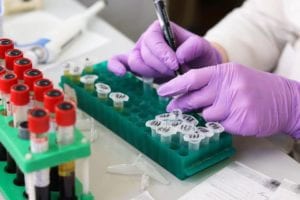Cogent Biosciences has just released promising initial data from their Phase 2 clinical trial called APEX. This trial is investigating bezuclastinib, a selective KIT D816V inhibitor, as a treatment for patients diagnosed with advanced systemic mastocytosis.
Systemic Mastocytosis
Systemic mastocytosis is a rare hematologic disorder. The condition is the result of a build up of mast cells in organs throughout the body.
AdvSM stands for the advanced form of the condition which is very rare and extremely aggressive. 90% of patients have a non-advanced form of the condition, which is still extremely debilitating. Patients face abdominal pain, vomiting, bloating, diarrhea, skin lesions, gastroesophageal reflux, urticaria pigmentosa, headaches, and skin redness. These symptoms can drastically affect patient’s quality of life. Additionally, the risk of anaphylactic reactions to things like insect bites can make every day feel full of risk.
AdvSM patients often face even more severe symptoms like an enlarged liver, an enlarged spleen, swollen lymph nodes, bone fractures, anemia, ascites, thrombocytopenia, and more. These symptoms result in organ failure and ultimately, death. Patients with AdvSM have a median life expectancy of just 3.5 years.
Researchers are extremely hopeful about the investigative bezuclastinib treatment. Bezuclastinib targets 17 different mutations in tyrosine kinase. One of these is KIT D816V. Targeting KIT D816V could lead to a reduction in the accumulation of mast cells.
APEX
APEX is a two part investigation which has, so far, treated 11 patients at four different doses in the first part of the trial. The goal of this trial is to evaluate the safety, the efficacy, and the pharmacokinetic and pharmacodynamics of the bezuclastinib treatment in systemic mastocytosis patients.
Patients in this trial ranged from 48-87 years old. Of the 11 patients, 1 had mast cell leukemia, 2 had AdvSM, and 8 had systemic mastocytosis and associated hematologic neoplasm (SM-AHN). Two of the patients had previously received midostaurin and avapritinib therapy.
Every patient in the trial achieved at least 50% reduction in their serum tryptase levels. Of 8 patients who were able to be evaluated by C3D1, every individual achieved at least a 50% reduction in their bone marrow mast cells. 6 of these individuals achieved complete elimination of bone marrow mast cells.
The therapy was found to be well tolerated with most AEs being just Grade 1/2.
These initial results are extremely optimistic. Researchers are looking forward to continuing this investigation and will provide another trial update by the end of this year.
You can read more about this investigation and its initial findings here.








